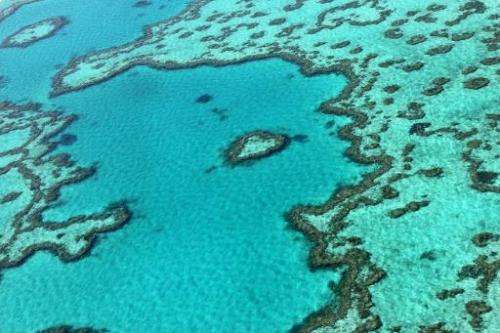India-backed port won't dump dredge in Australia's Great Barrier Reef

Plans to dump dredge waste in Australia's Great Barrier Reef as part of an Indian-backed port expansion have been shelved in favour of land disposal, Queensland state said Wednesday.
The Australian government in January broadly ruled out allowing dredge dumping in the Great Barrier Reef area, but the Port Abbot project in north Queensland had been approved last year.
It has now been dropped, however, after outcry from conservationists, who say the plan to deposit three million cubic metres of material into the World Heritage-listed waters could hasten the natural wonder's demise.
Environmentalists argue that dumping waste in reef waters damages it by smothering corals and sea grasses and exposing them to poisons and high levels of nutrients.
"Today my government sends a clear message: we can protect the Great Barrier Reef, and we can foster economic development and create jobs," recently elected Queensland Premier Annastacia Palaszczuk said in a statement.
The new proposal, agreed with India's Adani Group and Australian miner GVK Hancock, will see the dredge spoil disposed at an unused port terminal, T2, at Abbot Point.
The plan will undergo an environmental impact assessment before it is approved.
"T2 is the only remaining unallocated industrial land at the port and the only responsible way to proceed with the Abbot Point development to ensure it is ready for future (coal) exports from the Galilee Basin," Palaszczuk said.
The dredging will allow freighters to dock at Abbot Point, increasing the coal port's capacity by 70 percent to make it one of the world's largest.
The announcement was welcomed by environmental group World Wildlife Fund (WWF) as a positive move, although it questioned the need for the port expansion.
"This shows the government is listening to people who care about the reef and the important coastal wetlands that are precious habitats and act as filters to protect the reef," WWF Australia's Louise Matthiesson said in a statement.
But she warned: "The dredging operation itself will have serious impacts, like destroying seagrass beds, regardless of where the spoil is dumped."
The health of the world's largest coral reef system, which stretches along the Queensland coast, is already under close scrutiny from the United Nations Educational, Scientific and Cultural Organisation (UNESCO).
Climate change, poor water quality from land-based run-offs, coastal developments and fishing all threaten the biodiverse site.
UNESCO has previously threatened to put the reef on its World Heritage in danger list, but has delayed taking action to allow Australia to submit a report on how it will protect the biodiverse site.
© 2015 AFP


















